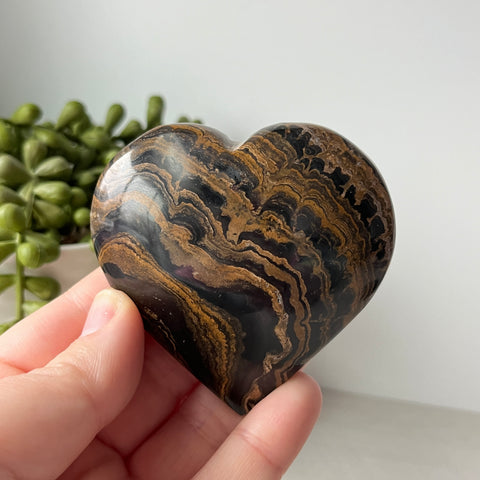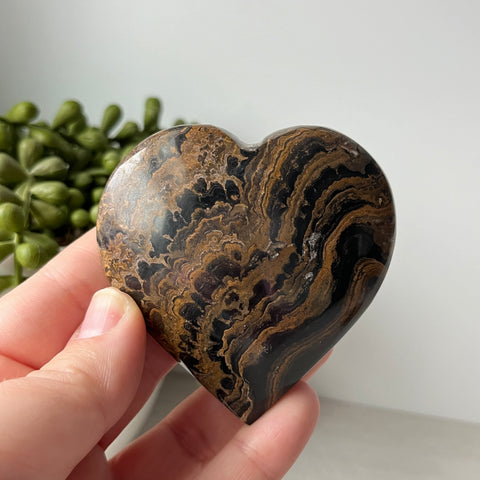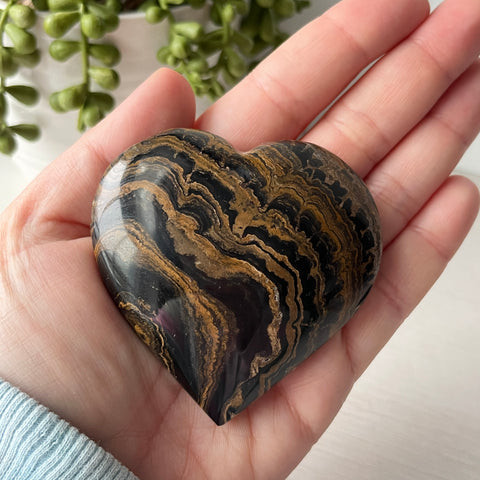


crystal cavern imports
Stromatolite Heart
Title
₩41,000
Key Words:
Motivation | Relaxation | Resolution
Chakra:
Root
Zodiac:
♓Pisces
Dimensions:
175 gs
3" long, 3" wide
Stromatolites are fascinating geological structures formed by the layering of cyanobacteria (also known as blue-green algae) and sediment. These structures are some of the oldest evidence of life on Earth, dating back over 3.5 billion years.
Stromatolites typically appear as rounded, layered mounds or columns, often found in shallow waters such as tidal flats, lakes, or shallow seas. They can vary in size from small formations to large, complex structures several meters in diameter.
The process of stromatolite formation begins with the growth of microbial mats, primarily composed of cyanobacteria, which trap and bind sediment particles together. Over time, these layers of microbial mats become fossilized as new layers of sediment accumulate on top, creating distinct banding or lamination within the stromatolite.
Stromatolites played a crucial role in Earth's history by producing oxygen through photosynthesis, contributing to the oxygenation of the atmosphere and the development of complex life forms. Today, stromatolites are relatively rare, as they are often overshadowed by more advanced forms of life and are found in only a few select locations around the world, such as Shark Bay in Australia and Hamelin Pool in Western Australia. However, they continue to provide valuable insights into the early evolution of life on our planet.
Stromatolites typically appear as rounded, layered mounds or columns, often found in shallow waters such as tidal flats, lakes, or shallow seas. They can vary in size from small formations to large, complex structures several meters in diameter.
The process of stromatolite formation begins with the growth of microbial mats, primarily composed of cyanobacteria, which trap and bind sediment particles together. Over time, these layers of microbial mats become fossilized as new layers of sediment accumulate on top, creating distinct banding or lamination within the stromatolite.
Stromatolites played a crucial role in Earth's history by producing oxygen through photosynthesis, contributing to the oxygenation of the atmosphere and the development of complex life forms. Today, stromatolites are relatively rare, as they are often overshadowed by more advanced forms of life and are found in only a few select locations around the world, such as Shark Bay in Australia and Hamelin Pool in Western Australia. However, they continue to provide valuable insights into the early evolution of life on our planet.
